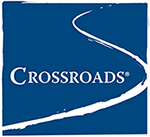Seeking out a dual diagnosis treatment center may be one of the best decisions you ever make for your health and well-being. If you are struggling with both a mental illness and a substance use disorder, then you know how difficult it can be to manage both conditions. When you receive treatment at a dual diagnosis treatment center, you will have access to the resources and support you need to manage your mental illness and addiction effectively.
A dual diagnosis treatment center can provide comprehensive care for your mental health and substance use disorder. You will work with a team of professionals with experience in treating both conditions. This team may include psychiatrists, psychologists, counselors, social workers, and other mental health professionals. They will work together to create a treatment plan that fits your unique needs. To learn more about mental health treatments at Crossroads, call our team at 877.978.1667
What Is a Dual Diagnosis Treatment Center
The dual diagnosis treatment center specializes in programs for individuals dealing with substance use, eating disorders, behavioral and mental health issues. Dual diagnosis or co-occurring disorders treatment at Crossroads provides clients with the comprehensive care they need to manage both substance use and mental health illnesses. Each client’s individualized plan addresses the physical, mental, emotional, and social impact a dual diagnosis can have on a client’s life. Treating both conditions at the same time allows clients to build positive attitudes, healthy habits, and effective coping mechanisms necessary for long-term recovery.
The Connection Between Substance Use and Mental Health Disorders
It’s unclear in many circumstances which issue developed first—substance use or a mental health disorder. The two share many similarities as each drives the other. The National Alliance on Mental Illness estimates that around one-third of people experiencing mental illness and one-half of those with severe mental conditions also battle substance use. It can be hard to differentiate between the two because many people use drugs or alcohol to cope with their mental illnesses.
However, mental illness can also make them more susceptible to substance use. This vicious cycle can be challenging to overcome. However, comprehensive treatment that addresses these conditions’ overall impact makes a recovery possible through proper treatment. If only one condition is treated but not the other, it can increase the risk that the person will relapse because they are not prepared to deal with the influence of one condition on the other. Treating both illnesses allows clients to develop the strategies necessary for their situations.
Mental Health Services Provided During Treatment
Mental health treatment programs are integrated throughout all levels of care at Crossroads, from the Back Cove women’s residential program, specialized eating disorders residential treatment program, and children and mothers residential program to outpatient treatment and therapy groups. Our clients can find the comprehensive care they need to improve their mental health as they overcome addiction.
Clients may participate in a variety of programs and activities, including:
- Individualized therapy and counseling
- Group therapy
- Family therapy
- Wellness services such as yoga and meditation
- Recreational activities
During individualized treatment, clients work with clinicians trained in co-occurring disorders. Individuals learn to cope with stress and difficult situations more effectively. They learn to improve communication and problem-solving, build healthier relationships, and much more.
Get Individualized Treatment Through Crossroad’s Dual Diagnosis Treatment Center
At Crossroads, we know that while there is no cure for mental health illness. However, they can be managed to at least improve the lives of those who suffer from them. We do this through therapy and counseling. We also recognize that individuals abusing alcohol or drugs might have mental illnesses. In cases like this, Crossroads has co-occurring disorders-focused treatment and dual diagnosis group activities to address every situation. If you or someone you love could benefit from our co-occurring disorders treatment or needs access to a dual diagnosis treatment center, contact Crossroads today at 877.978.1667 for more information.
